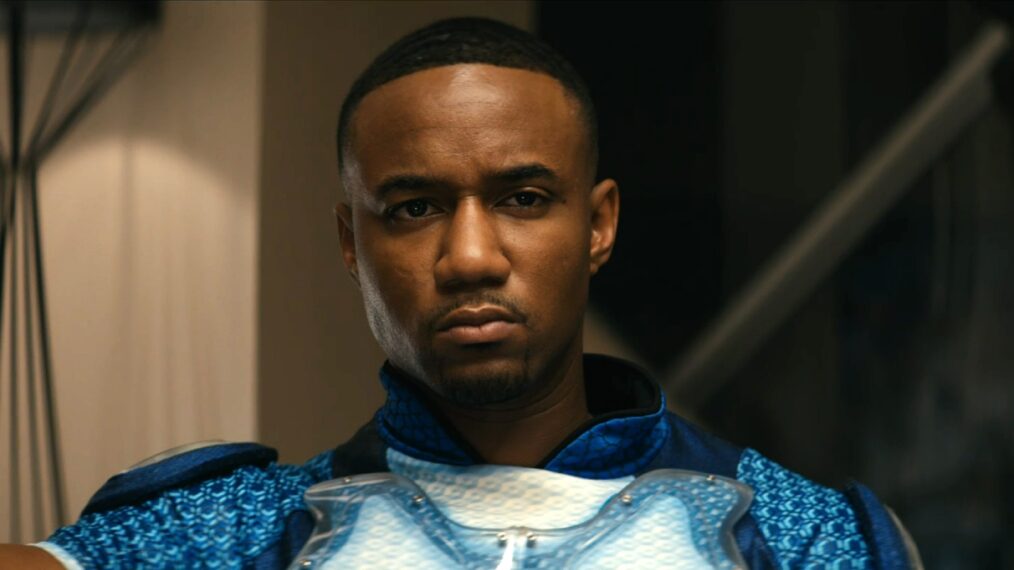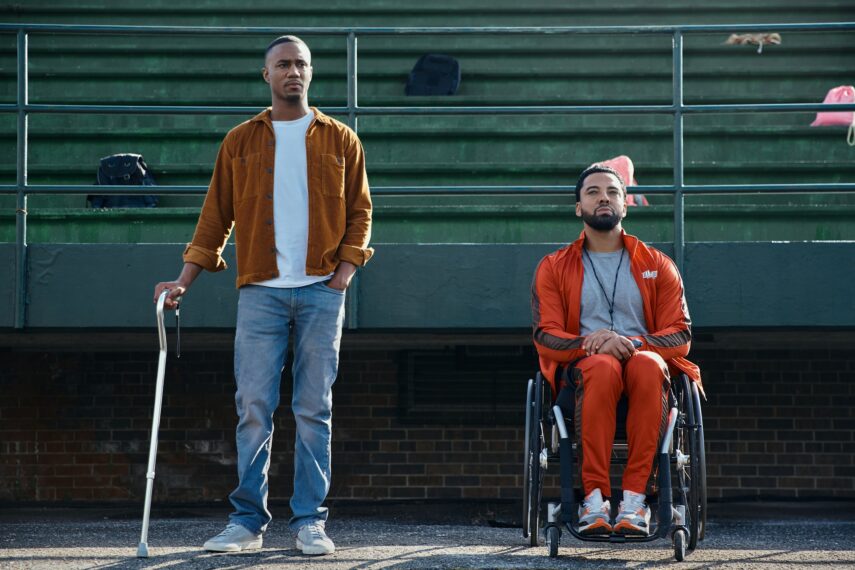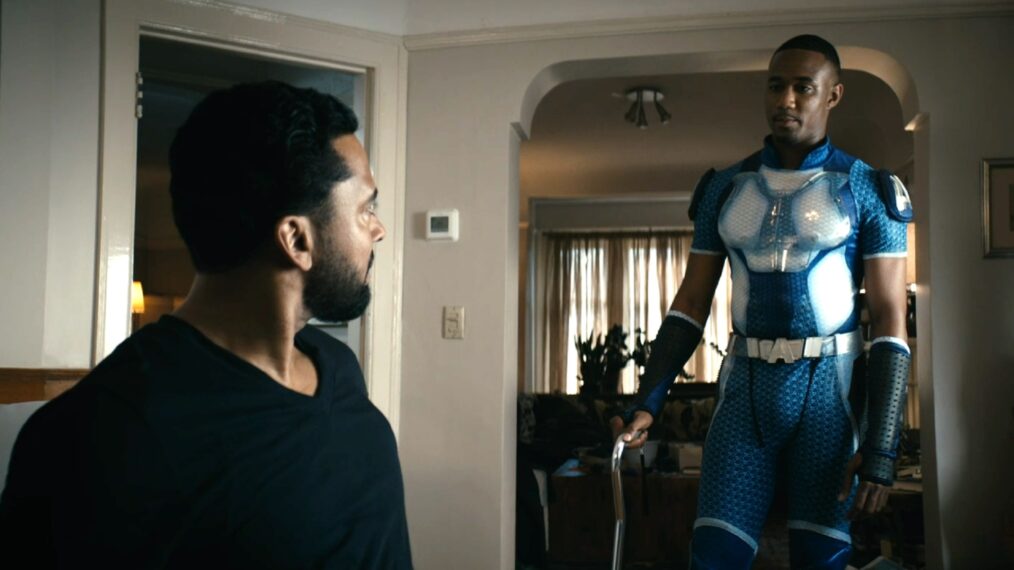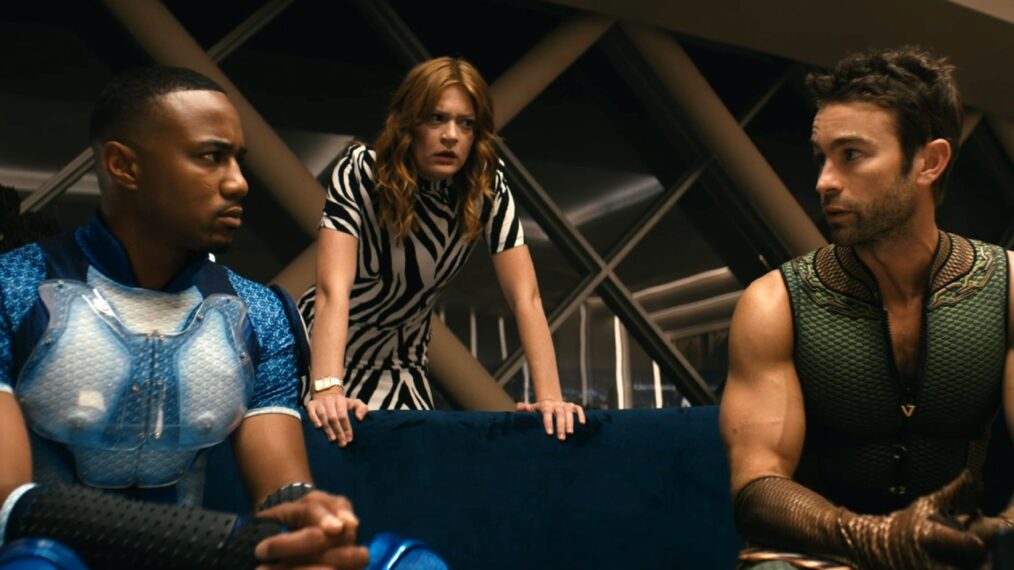As Season 3 of The Boys draws to an end, viewers have a lot to ponder as they excitedly anticipate the release of Season 4. One of the inquiries is on A-Train’s (Jessie T. Usher) upcoming actions.
In Season 3, the nimble Supe faced a whirlwind of emotions and trials, from a rebranding experience at Vought and a confrontation with abusive Supe Blue Hawk (Nick Wechsler) to obtaining a new heart from his foe and resolving family strife because of his paralyzed brother Nate (Christian Keyes). Stated differently, there was a lot to take in, particularly considering that Homelander (Antony Starr) remained a constant menace. Usher discusses his character’s progress in Season 3 and looks forward to Season 4 below.

This season, A-Train felt like he was attempting to carve out a redemption path for himself. Is he trying to make up for the wrongs in his past?
Jessie T. Usher: I don’t know if he’s ever really considered making up for it, I just think he’s more so not wanting to make a bigger mess. So whatever’s in the past is in the past. He doesn’t seem like the type of person to kind of let those things live in his head. But he’s afraid of his situation getting darker. He is afraid of getting worse. He’s afraid of making more mistakes. He’s afraid of more innocent people getting hurt. And I think that’s his intention: just to not let things get even more out of control than where he is right now.

In retribution for crippling his brother, A-Train murders Blue Hawk. After the encounter, your character gains a new heart. Is this a second opportunity for A-Train?
Interestingly enough, we played around with that idea a lot in Episode 307, when he first realizes in the hospital that he has Blue Hawk’s heart. He has mixed feelings about it because he hated this guy, but now he’s the reason he is alive. So what do you do with that second chance? And how do you feel about the way you got it? The problem with A-Train is it’s not always getting to a destination. It’s how you get there. So although he’s happy to be alive [and] have a second chance, it comes from the person who has damaged his family the most, and that’s always going to live with him subconsciously. And he’s not really sure how to deal with it just yet.
In the finale, he has that conversation with his brother and he’s still figuring out what he’s going to do with his second chance. And I think that’s something that we’re going to have to just explore in Season 4. But I think at least, figuratively speaking, his heart is in the right place.
Speaking of that conversation with his brother, A-Train and Nate end the season on a bad note. Is there hope for reconciliation in the future?
Absolutely. I mean, I’d like to see how the dynamic comes together. I think as long as they’re both alive, there’s always room for improvement. There’s always room for reconciliation. They’re still family. They both have a very difficult time seeing eye to eye. Every day they grow further and further apart. But I still think at the end of the day, they view each other the way they always have. And now A-Train is opening up to his brother, and his brother is doing the same thing back. It could go haywire, who knows. They could be enemies in Season 4. But I think that there will be some type of new dynamic in their relationship. I just don’t know if it’s going to be good or bad, but I think it’s going to be prominent.

Much of your Season 3 storyline had to do with social justice and fighting back against police and authoritarian brutality. What was it like collaborating with the writers on A-Train’s story this season?
Storylines came as the show was progressing. Then we were able to discuss how that looked through A-Train’s eyes and his role in this whole world and then out of respect for the corporate control that Vought has over the whole thing, how it all gets misconstrued. Yet, the focus of A-Train has always been the same. At first, it started very surface-level, very much like, “I’m going to do this to make it seem like I’m doing the right thing or to at least appear to be on the right side.” And then when it got personal, it actually [changed for him].
So that process just naturally became like a tennis match. It was like, I hit an idea to them, they hit another one back, and so forth, and it was very liberating. It was nice to have that platform to speak on that particular topic. And the way that it played out, with the sacrifices that were made, it just seemed like the stakes were high enough to actually do that storyline justice. So I’m very happy with the way it turned out.
That wasn’t the only high-stakes aspect of A-Train’s story this season. There’s a terrifying “family meeting” of sorts between Homelander, A-Train, Ashley (Colby Minifie), and The Deep (Chace Crawford) in the finale. It’s clear by the end of Season 3 that Homelander has no limits on what he’ll do. Should A-Train be looking over his shoulder heading into Season 4?
Absolutely. Yeah. I think from the beginning of this show, they always should have and that’s, in large part, the reason why they end up in this position. They weren’t seeing the whole picture. Now everyone is forced to see it. And unfortunately, Homelander has all the control and all the power. And anything that makes him feel weak, he’s almost willing to get rid of, regardless if it benefits him or not. It’s just how he sees himself. And that’s a scary place to be.

So A-Train, having a second chance at life, is that going to be viewed as a threat? We don’t know. There’s a lot of emotion involved in what this story can be and how things can play out — especially within the Vought Tower. I think it’s going to get messy before it gets any cleaner.





